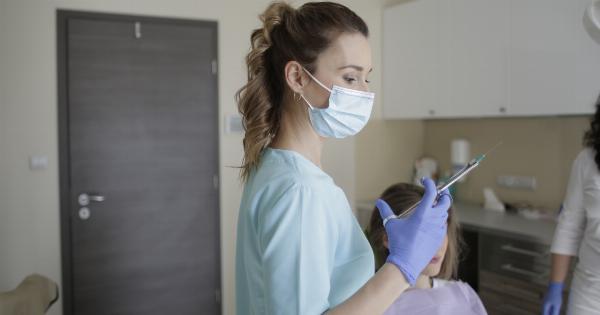Asthma is a chronic respiratory condition characterized by inflammation and narrowing of the airways, leading to symptoms such as wheezing, coughing, shortness of breath, and chest tightness.
When a person with asthma requires surgery or a medical procedure that requires anesthesia, it is essential to consider how asthma may affect the administration and management of anesthesia. Anesthesia is a critical aspect of any surgical or medical procedure as it ensures patient comfort, pain relief, and safety interventions. Let’s explore how asthma can impact anesthesia and the necessary precautions that need to be taken.
1. Increased risk of bronchospasm
Individuals with asthma are at an increased risk of experiencing bronchospasm during anesthesia. Bronchospasm refers to the sudden contraction of the bronchial muscles, resulting in airway narrowing and difficulty in breathing.
Anesthesia itself, as well as certain drugs used during the procedure, can trigger bronchospasm in asthmatic patients. Anesthesiologists must be prepared to promptly diagnose and treat bronchospasm to prevent further complications.
2. Allergic reactions to anesthesia drugs
Asthma patients may have an increased risk of allergic reactions to anesthesia drugs, such as muscle relaxants, opioids, and antibiotics.
These allergic reactions can range from mild rashes to severe anaphylaxis, a life-threatening condition characterized by a sudden drop in blood pressure, difficulty breathing, and swelling of the airways. Anesthesiologists must be aware of the patient’s asthma history and carefully select anesthesia drugs to minimize the risk of allergic reactions.
3. Difficulties in assessing lung function
Asthma can make it challenging to assess lung function accurately before and during anesthesia. Pulmonary function tests, such as spirometry, may be less reliable in individuals with uncontrolled or severe asthma.
Anesthesiologists may need to rely on other clinical signs and symptoms to gauge the patient’s respiratory status, such as auscultation of lung sounds, observing for wheezing, and monitoring oxygen saturation levels.
4. Pre-operative optimization
Asthma patients scheduled for surgery require pre-operative optimization to ensure their respiratory condition is well-managed before undergoing anesthesia.
This may involve optimizing asthma medications, such as inhaled corticosteroids and long-acting bronchodilators, to achieve better asthma control. Anesthesiologists may also consider consulting with the patient’s primary care physician or pulmonologist to develop an individualized plan for managing asthma during anesthesia.
5. Anesthesia options
There are different anesthesia options available for asthmatic patients, and the choice depends on various factors, including the type and duration of surgery, the patient’s asthma severity, and their response to previous anesthesia.
In general, regional anesthesia techniques, such as epidural or spinal anesthesia, may be preferred over general anesthesia as they have less impact on the airways and reduce the risk of bronchospasm.
6. Close monitoring during anesthesia
Asthma patients undergoing anesthesia require close monitoring of their respiratory status throughout the procedure.
This includes continuous monitoring of oxygen saturation, end-tidal carbon dioxide levels, and invasive arterial blood pressure if necessary. Anesthesiologists should also be prepared to intervene promptly in case of any respiratory complications, such as bronchospasm or airway obstruction.
7. Post-operative care
After surgery, asthma patients may require additional post-operative care to ensure their respiratory function is optimized.
This may involve close monitoring in the recovery room, continued administration of bronchodilators, and early mobilization to prevent complications such as atelectasis (collapse of lung tissue) or pneumonia. Proper pain management is also essential to prevent any post-operative triggering of asthma symptoms.
8. Communication between healthcare providers
Effective communication between the anesthesiologist, surgeon, and other healthcare providers is vital to ensure seamless coordination of care for asthma patients undergoing anesthesia.
The anesthesiologist must share relevant information about the patient’s asthma diagnosis, treatment plan, and any specific precautions or considerations that need to be taken. This allows the surgical team to make informed decisions and manage the patient’s asthma effectively during and after the procedure.
9. Asthma action plan
Prior to surgery, asthmatic patients should have a written asthma action plan in place. This plan outlines their regular asthma medications, steps to take during an exacerbation, and emergency contact information.
Anesthesiologists and other healthcare providers can use this action plan as a guide to ensure optimal asthma management and to recognize and respond promptly to any worsening of symptoms during the perioperative period.
10. Post-operative follow-up
Post-operative follow-up is essential for asthma patients to monitor their recovery and assess the impact of anesthesia on their respiratory function.
This may involve a visit to the primary care physician, pulmonologist, or even an asthma specialist to evaluate lung function, adjust asthma medications if needed, and provide further guidance on preventing future asthma exacerbations related to anesthesia or surgical interventions.































